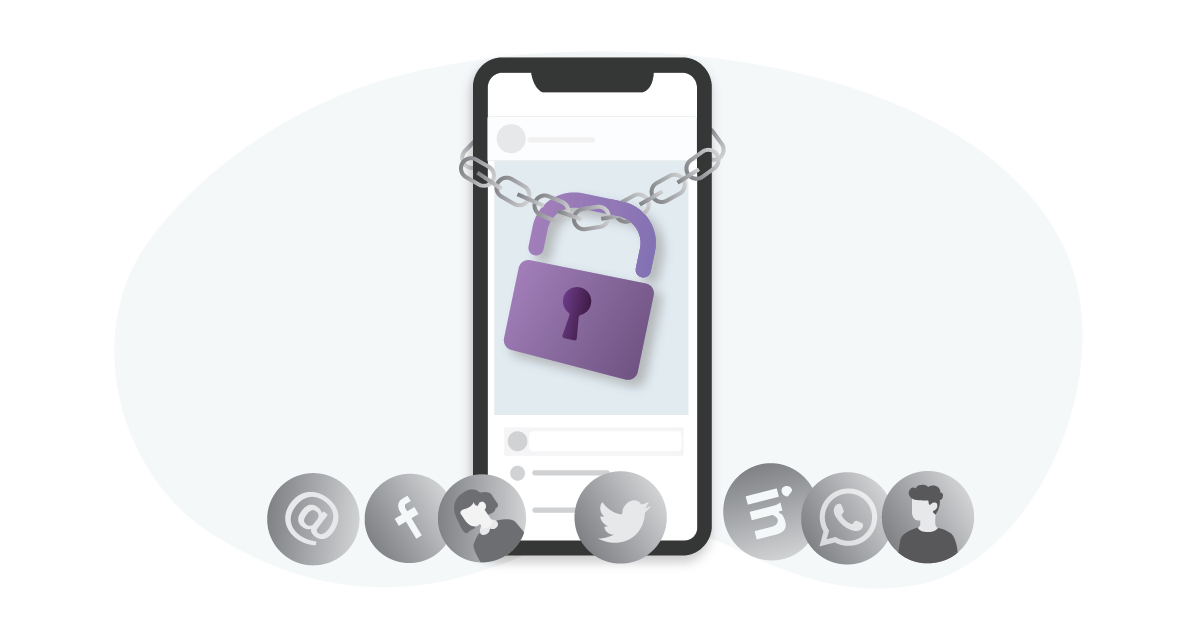The Importance of Employee Advocacy with Privacy on the Rise

With privacy on the rise, targeting individuals on social media and through paid ads is becoming harder and harder for marketers. Employee advocacy goes hand in hand with privacy regulations and is an effective way to work with and around — rather than against — them. Discover how advocacy allows you to reach the right people organically and authentically without breaching privacy.
How privacy regulations affect social media marketing...
When it comes to marketing, “consent” is the biggest challenge with many demanding angles:
- Getting people to consent can no longer be done using silence or pre-ticked boxes, consent becomes a conscious action by the person. And even then, it's done for a limited time
- The individual has the right to withdraw and/or modify his/her data
- Getting the consent of people under the age of 16 requires parental consent
- Companies will have to prove that an individual has given their consent freely
When it comes to marketing campaigns, collecting and using personal data such as emails, phone numbers, or other data suddenly become a whole lot more challenging, not to say impossible. Monitoring and retargeting potential clients (“profiling”) is now another main challenge.
On top of that, with social media platforms tightening privacy policies and restricting the organic reach of posts made through company pages, getting through to the right audience has become an increasingly tough job. This has led many brands to start putting more money into social media ads and boosting posts to push their reach. The new GDPR regulations, however, also affect this kind of behavior.
The European General Data Protection and Regulation law and other privacy restrictions on social media did considerably improve consumers' experience on the web, but they have also made the job of marketers harder and harder.

... And how to skirt the problem
The problem with restrictions is that they cripple the reach of more aggressive marketing methods. With people turning off tracking tools, there's no way to be as accurate anymore. So, how can we replace targeted ads without bumping into the walls of privacy?
Of course, there's nothing quite as effective as targeting people directly; let's be realistic. And to be fair, there was a need for limitations, to protect aggressive marketers from themselves. In order to keep digital platforms and social media a viable marketing area, the user always has to find value above intrusion. Otherwise, the danger exists that they will look for even more severe privacy-limiting tools or even abandon the experience altogether. So, as a marketer, it also makes sense to cap these seemingly limitless possibilities to preserve the opportunities.
But that doesn't mean that the same result — business growth — can't still be achieved.
If you think about it, these privacy regulations want us to go back to the roots. To have social media do what they were born to do: sharing and delivering valuable information to establish genuine connections. In the same way people prefer talking to a real person from a helpdesk, suggestions, and advertising works best when it comes from a person, not an algorithm.
The problem is scaling, of course.
Most platforms pretty much only cater to one single account or page, usually the company page. Great for individuals, much less for organizations as they're neither able to expand your network nor approach people with personalized messaging. Both are crucial if you truly want to reach and resonate like the personalized targeting is/was able to do.
.png?width=1200&name=Blog_NEW_Advocacy%26Privacy-02%20(1).png)
To take full advantage of the power of organic marketing, we need a better stage and a better stage crew. For every company page, there are X amount of people connected — employees, for example — who are connecting on a much higher level. So, given a chance, wouldn't you, as a marketer, want to enable them to socially market your product, services, or messaging as well?
Instead of letting algorithms bother your audience, let your existing network do what it does best: Connect. Advocacy is all about enabling and taking advantage of existing, established, and trusted human connections.
Embrace privacy and up your social media marketing game
Sponsored advertising alone doesn't stand a chance of generating trust. When an ad pops up on social media, people often see just another faceless brand desperately trying its hand at selling something. There is no human-to-human interaction there. There is no authenticity, no credibility. The product or service is the only thing that might persuade, and unless the offer is really good, there will mostly be annoyance and detachment.
Your peers have the power to gain the trust of the people they reach through a social media network because the messaging hinges on the existing personal connection. Because you know the people in your network, you are able to choose the right words to speak to them. This means that a peer's network is the perfect place for that person to raise brand awareness, recruit or even sell.
Advocacy extends your reach without meddling with privacy, stimulates social sharing, and ups your social selling game.
You and your company can take advantage of that bond to create durable business connections and tackle business challenges, whether it be recruiting new talent, building up your employer brand, or socially marketing your product.
So while advocacy may not deliver the same convenience or sheer reach as targeted ads, it does provide the opportunity to build long-lasting relations with your audience, and, therefore with your brand and its product or services. Advocacy doesn't try to bypass privacy, it works within its boundaries and still manages to stimulate social sharing and enrich your marketing with a more authentic experience.
A genuine experience, based on the roots and core of social media platforms. Something we can all agree we should go back to sooner rather than later.